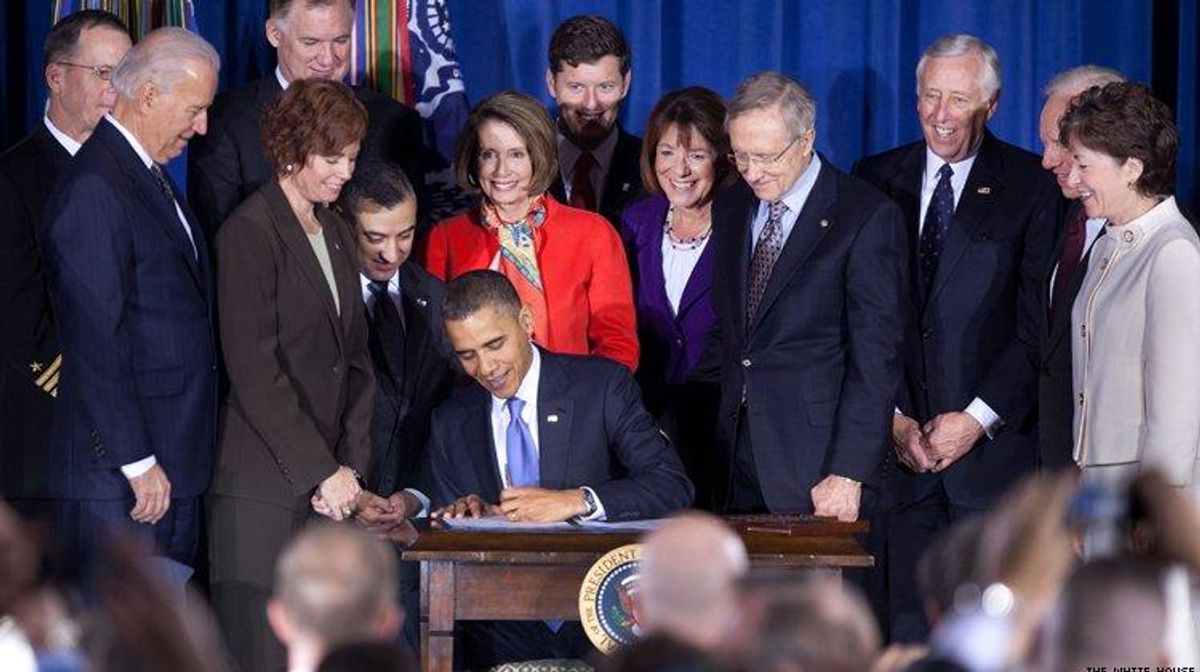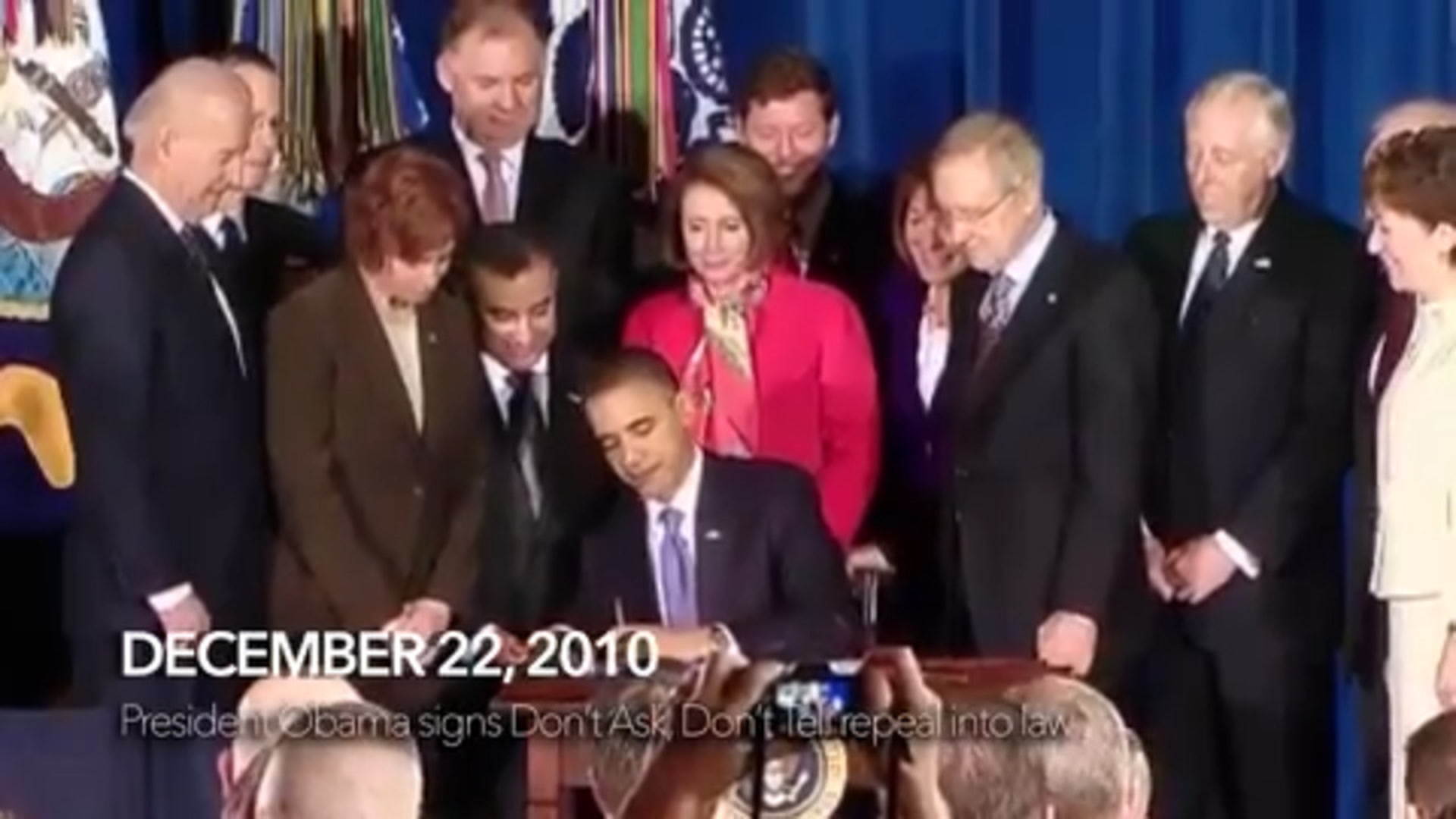December 22, 2010 -- 10 years ago today -- was a momentous date for lesbian, gay, and bisexual Americans: President Barack Obama signed legislation to repeal the "don't ask, don't tell" policy regarding LGB service members.
The repeal didn't go into effect until the following September, after the president and other officials certified that the armed forces were prepared to implement it consistent with standards of military effectiveness. But LGB military members and their supporters still were celebrating in December 2010.
U.S. Sen. Chris Coons of Delaware, a champion of repeal, has provided The Advocate an exclusive video (below) in which he reflects on the end of DADT and other progress toward LGBTQ+ equality since then -- and what still needs to happen. But first, a bit of history on American military policy toward LGBTQ+ folks.
LGBTQ+ Americans have served in our military as long as the U.S. has been a nation and even before, during the Revolutionary War. But through most of the country's history, military policy was that they could be discharged simply because of their identity, and many were, although the armed forces were happy to hold on to them in time of war. Bill Clinton, elected president in 1992, promised to lift the ban on troops then generally referred to as "gays in the military," actually meaning gays, lesbians, and bisexuals; there was little to no awareness of transgender troops at the time.
Clinton met great resistance among military leaders and in Congress, even from many of his fellow Democrats. The most vocal opponents clutched their pearls at the thought of straight troops having to share barracks or showers with gay people, even though this had been going on for ages. Hence the compromise of "don't ask, don't tell," which became the law of the land in 1994 and was actually projected to make life better for LGB service members. They were expected to remain in the closet, meaning they had to hide their most significant relationships, but their superiors weren't supposed to ask about those relationships or launch investigations.
Unfortunately, the asking and investigating continued. Nearly 14,000 people were discharged from the military under the policy, and thousands more decided not to reenlist because of it. Opposition to DADT grew in the 21st century, and Obama called for its repeal in his State of the Union address in January 2010. That would fulfill a campaign promise he and his vice president, Joe Biden, had made, even though, as a U.S. senator, Biden had voted for the policy. Biden proved key to the repeal effort, lobbying his former Senate colleagues, and military leaders got behind the cause as well.
Still, the road to ending DADT was fraught with tough negotiations in the House and Senate, and outcry by military members and activists who said the process wasn't moving quickly enough; some notably protested by chaining themselves to the White House fence. Some Republicans in Congress wanted to maintain the policy, but repeal legislation ended up passing with bipartisan support.
"We are not a nation that says, 'don't ask, don't tell,'" Obama said at the signing ceremony. "We are a nation that says, 'Out of many, we are one.' We are a nation that welcomes the service of every patriot. We are a nation that believes that all men and women are created equal. Those are the ideals that generations have fought for. Those are the ideals that we uphold today. And now it is my honor to sign this bill into law."
In 2016, the last year of Obama's presidency, the military lifted its ban on transgender troops. Because that was a matter of Defense Department policy, not a law passed by Congress, it didn't require congressional action. The next year, Donald Trump infamously reinstated the ban, but Biden has promised to lift it and to advance LGBTQ+ equality in many other ways, passage of the Equality Act among them.
Coons, a Democrat, now holds Biden's old seat in the Senate. His work to repeal DADT came during his first month in office -- he had been sworn in shortly after a special election in November 2010. Watch his remarks below on where we've been and where we're going.



















































































